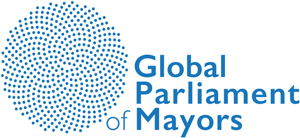25 January 2021 – GPM’s partner from Georgetown University, Rebecca Katz and Matthew Boyce, have published a new article on the importance of city networks and organizations during the global response to the COVID-10 pandemic.
Abstract
Recent years have witnessed cities establishing themselves as major players in addressing global issues, often taking collective action through international city networks and organizations. These networks are important, as they amplify the voices of municipal officials, who are often excluded from high-level decision-making, and can also provide a platform for officials from lowor middle-income nations to participate in higher-level political forums. The global response to the COVID-19 pandemic has included traditional public health stakeholders—including supranational organizations, international non-governmental organizations and national authorities—but has also featured mayors and city networks, in an unprecedented fashion. Existing networks without an explicit focus on health have shifted their focuses to prioritize pandemic response and several new networks have been created. These developments are significant, not only because they represent a shift in health governance and policy, but also because cities and urban networks more broadly have exhibited a nimbleness and pragmatism unmatched by higher levels of governance. These characteristics could prove beneficial for addressing the current pandemic, as well as future health issues and emergencies. Furthermore, given the relative lack of engagement with health security issues before the COVID-19 pandemic, the drastic health and economic impacts associated with it, and the demonstrable value added by strong city leadership, there are an open policy window and a compelling case for continued city engagement in health security.
Read the full article HERE.

